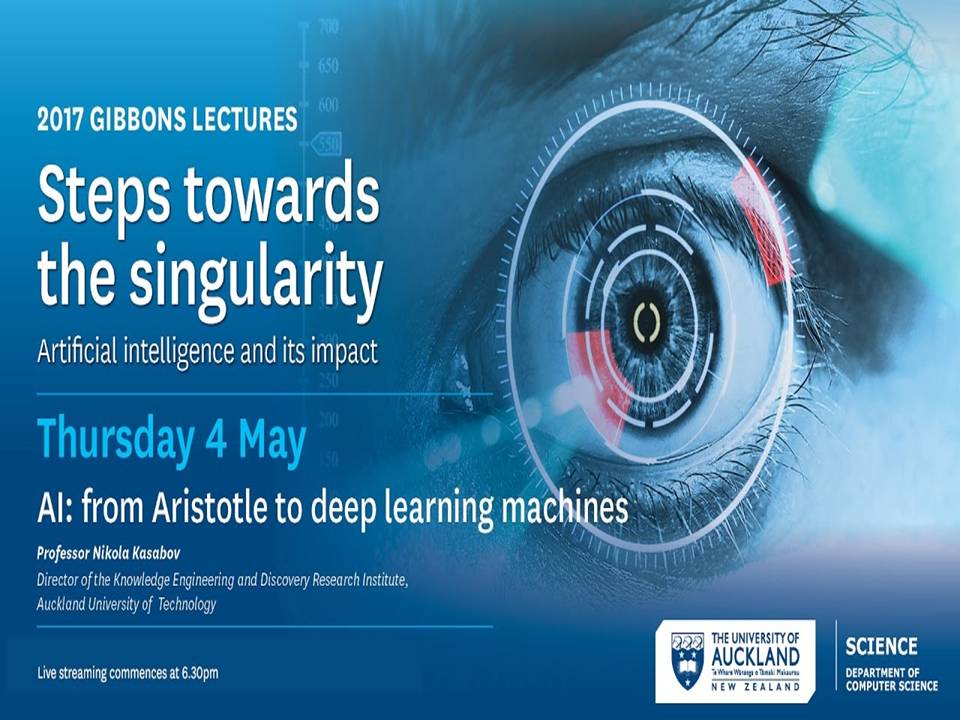Speaker: Professor Nikola Kasabov, Director of the KEDRI Research Institute, Auckland University of Technology
2017 GIBBONS LECTURES
Professor Nikola Kasabov
Thursday, 4th of May, 2017
Artificial Intelligence; Part of the interdisciplinary information sciences area that develops and implements methods and systems that manifest cognitive behaviour.
Main features of AI are: learning, adaptation, generalisation, inductive and deductive reasoning, human-like communication.
Some more features are currently being developed: consciousness, self-assembly, self-reproduction, AI social networks,…
The talk presents briefly the main principles used in AI, from Aristotle’s true/false logic, through fuzzy logic, evolutionary computation and neural networks, to arrive at the current state-of-the-art in AI – the deep learning machines. One particular such machine, developed in the presenter’s KEDRI Institute and dubbed NeuCube, is designed for deep learning of complex data patterns so as to predict future events. It uses the latest AI technique called spiking neural networks (SNN) that mimics the learning capabilities of the human brain.
NeuCube has already demonstrated its usefulness when dealing with Big Data such as brain EEG and fMRI data; brain-computer interfaces; seismic data; and environmental data for stroke prediction. This is the beginning of understanding complex patterns of changes of variables in space and time and their relevance to future events. It will have a significant impact on our understanding of the dynamics of the micro and the macro worlds with particular application in medicine.

Professor Nikola Kasabov is the Foundation Director of KEDRI, and a Chair of Knowledge Engineering at the School of Computer and Information Sciences at AUT, Fellow of the Royal Society of New Zealand, Fellow of the New Zealand Computer Society and a Fellow of IEEE. He holds a MSc and PhD from the Technical University of Sofia. His main research interests are in the areas of: intelligent information systems, soft computing, neuro-computing, bioinformatics, brain study, speech and image processing, data mining and knowledge discovery.

